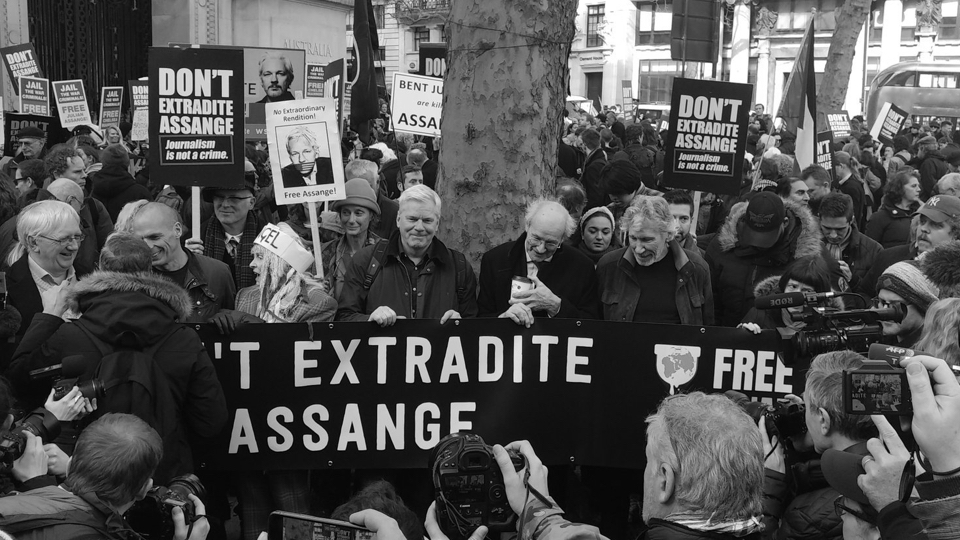Two days after blocking Julian Assange’s extradition to the United States, District Judge Vanessa Baraitser has denied Assange’s bail application, keeping him in custody at HMP Belmarsh while the U.S. appeals the decision.
Lawyers for Assange today argued to release Assange immediately, saying he would accept stringent conditions including house arrest. Defense lawyer Ed Fitzgerald said the “natural consequences” of the judge’s ruling on Monday, which ordered Assange’s discharge, “must be that he regains his liberty, at least conditionally.”
Fitzgerald argued that since October 2019, Assange has been detained solely on the basis of the U.S. extradition request. Now that the judge has ruled against extradition, there is no more reason to keep him in prison. Fitzgerald noted that outgoing U.S. prosecutor Zachary Terwilliger, reacting to the blocking of Assange’s extradition, told the press yesterday that he wasn’t even sure if the incoming Biden administration intends to continue its prosecution of Assange.
“It will be very interesting to see what happens with this case,” Terwilliger said. “There’ll be some decisions to be made. Some of this does come down to resources and where you’re going to focus your energies.”
Fitzgerald also argued that Assange must be released for his own safety. Belmarsh has seen a spike in COVID19 cases in December, and a fellow inmate has recently committed suicide.
Finally, Fitzgerald said Assange should be freed for “broader reasons of humanity,” to finally be allowed physical contact with his family—his partner and their two young children.
Prosecutor Clair Dobbin, acting for the U.S., said that the denial of Assange’s extradition, based on mental health grounds — the judge ruled it would be unjust and oppressive” to extradite Assange due to the high risk of suicide — “hangs by a single thread.” Dobbin said that Assange’s seeking of asylum in the Ecuadorian Embassy in London shows his determination to avoid U.S. extradition, and she noted WikiLeaks’ assistance of whistleblower Edward Snowden as he sought asylum after disclosing NSA documents to journalists.
Judge Baraitser ruled that because the U.S. has signaled its intent to appeal the case, “As far as Mr Assange is concerned, this case is not yet resolved.” She noted Assange has previously shown willingness to “abscond”, and said she finds the conditions at Belmarsh “bear no resemblance” to those she found he would endure if sent to the United States. The judge denied Assange’s bail application and proceedings concluded.
The United States now has 13 more days to formally submit its appeal of the extradition decision, and the U.K.’s High Court will decide whether to hear the case.

